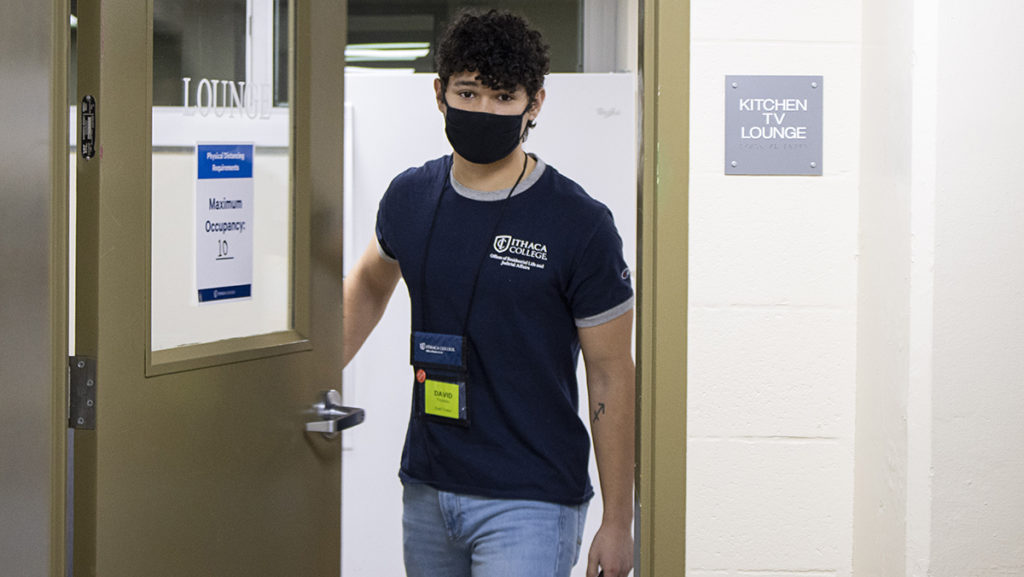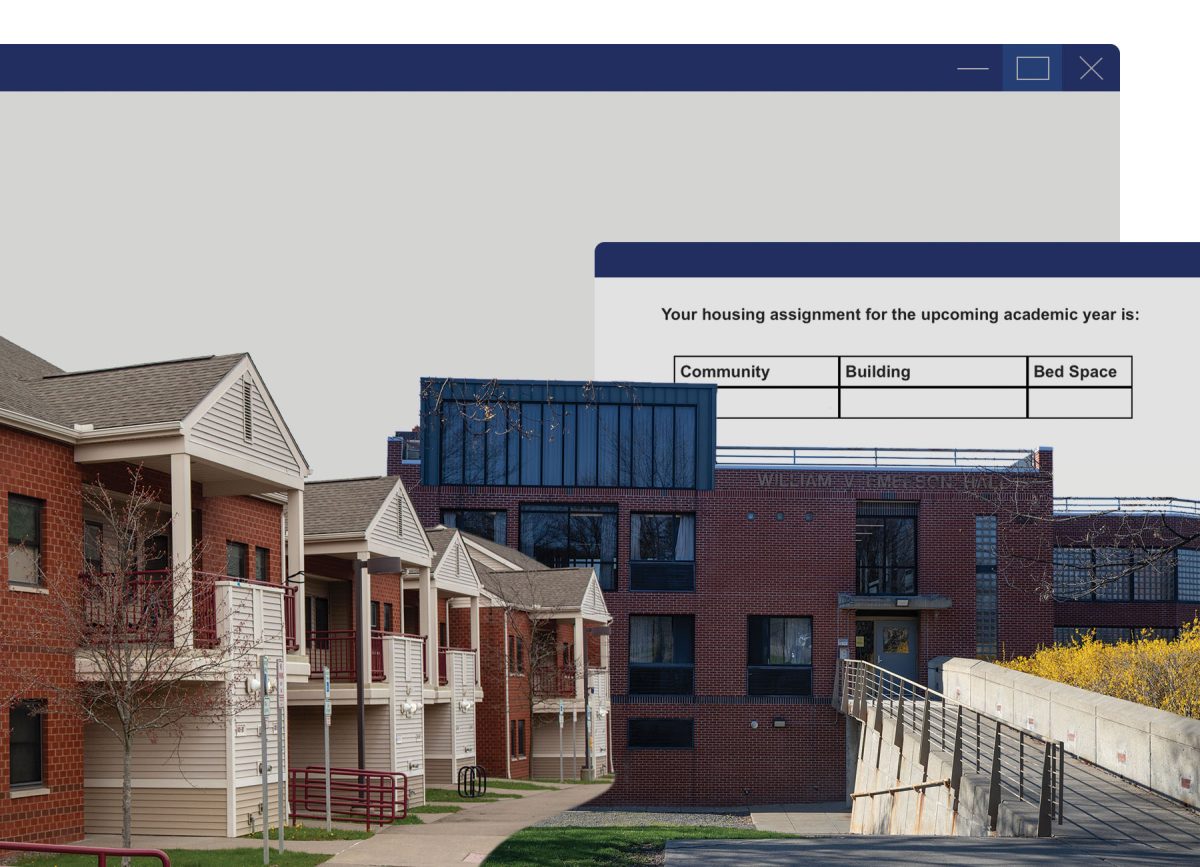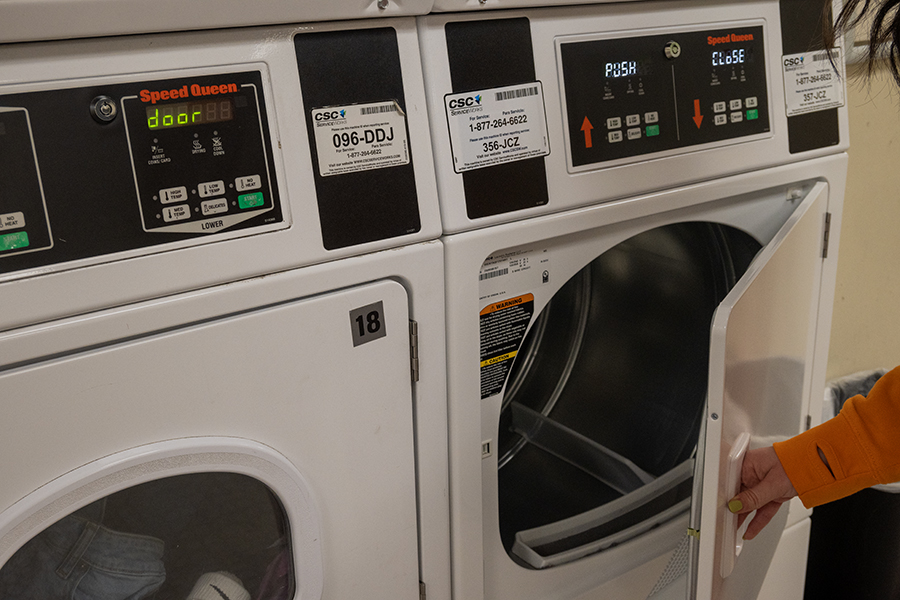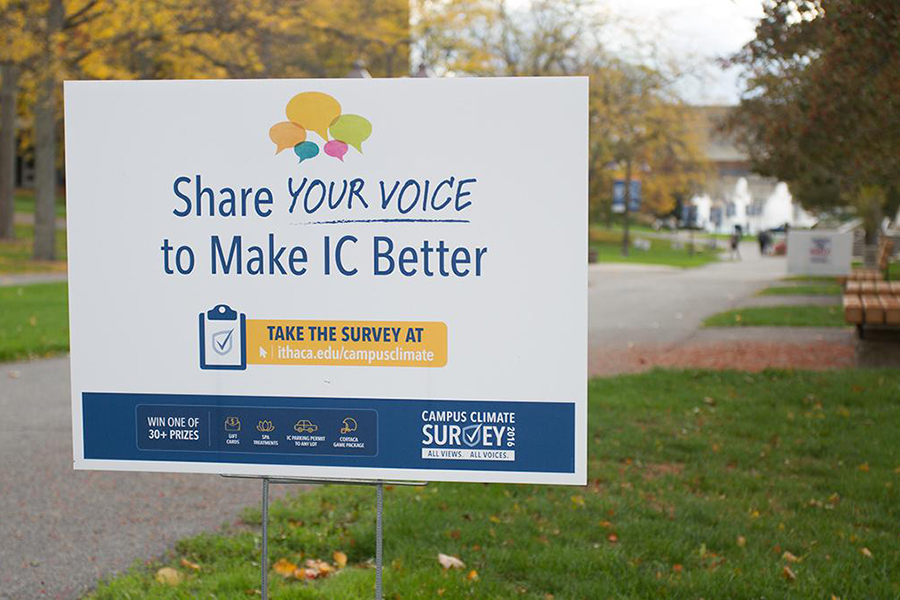During the first in-person semester since the COVID-19 pandemic, some Ithaca College Resident Assistants (RAs) have said they have felt increased anxiety and stress in their dual roles as both authority figures and students.
Beth O’Neill, assistant director of staff and programs in the Office of Residential Life, said that for Spring 2021, there are 74 RAs on campus and 11 virtual RAs — a new position first introduced in Fall 2020 to accommodate students who chose to remain remote. In Fall 2019, the RA staff consisted of 131 RAs in the upper and lower quads, Towers and the Terraces Residence Halls. The decrease in RAs imbalanced the RA-to-resident ratio, causing some RAs to take on multiple floors or whole buildings.
In the era of COVID-19, more regulations and policies were added that RAs had to enforce.
Changes to the residence halls include alterations to the guest policy and rules to maintain social distance in lounges. Lounges had occupancy limitations posted, and until March 1, students could not enter each other’s dorm rooms, according to an email sent to students Feb. 17. It is the RAs’ responsibilities to regulate these policies, documenting any violations they come across.
“On the surface level, it’s just to mandate mask wearing and social distancing, but with COVID comes more stress with the residents, more stress with the RAs and more stress with our classes,” junior David Florentin, a second-year RA, said.
Katie Newcomb, assistant director in the Office of Student Conduct and Community Standards, said via email that during Spring 2021, there were 125 reports from the Resident Assistant/Apartment Assistant General Conduct Report as of May 5.
“With alcohol violations, it’s very clear and very written in stone, but with COVID, it’s a lot more difficult, especially when you want to be empathetic because it is really hard,” junior Becca Feeney, a senior resident assistant (SRA) in Clarke Hall, said.
Sara Rodrigues, resident director (RD) for East and West Towers, said she was thankful for the responsible actions taken by the student body regarding COVID-19 protocols. Since Jan. 1, there were 115 people who used the Community Agreement Reporting Form to report violations on campus.
“[The student body is] still being aware that it’s not just you, it’s the larger community as well, and I feel like that our students have been practicing that as best as they can,” Rodrigues said.
While upper-year students had to adjust to the new restrictions and living environment on campus, freshmen had difficulty adapting to college life in general.
Florentin said he has worked with freshmen residents for two years and felt like this year’s freshmen are different.
“They didn’t have prom,” he said. “They didn’t have graduation, and they missed their first semester. The residents have been pretty resilient. They have just been happy that they are on campus. So, they’ve been pretty wild.”
RAs reach out and find ways to connect residents in the greater college community, all the while being the rule-enforcers for the safety of their residents.
“[This relationship] has been exaggerated by both ends; RAs and residents,” Florentin said. “It’s been exaggerated because RAs now have more rules they have to regulate and also residents are more rowdy and more wild because they lost their first semester.”
The training for new RAs was conducted entirely online, sophomore RA Muhammed Cisse said. The structure included learning about resources on campus and running through the basic responsibilities of being an RA.
“We would watch TED Talks on inclusion and then we were asked to apply these ideas from these videos into our RA roles,” Cisse said. “You get the technicalities but you don’t get the real world experience so I found myself often asking SRAs or my RD for help.”
Freshman Ryan Fogler, one of Cisse’s residents, lived on campus for his first semester this spring.
“I can imagine it’s not a very easy task being an RA during a pandemic, but he really did a great job, and I think he made Eastman a very enjoyable place to live in,” Fogler said.
Cisse had 24 residents across two floors in Eastman Hall, making his first semester as an RA on campus much more demanding.
“I was not prepared and I did not do my job to the best of my ability because I had multiple floors,” Cisse said. “They’re going to have to hire more RAs [in the fall], which means there will be less of a load on RAs that have so much to do.”
RAs at Cornell University went on strike in August 2020, demanding hazard pay and safer working conditions a week before students began to move in on campus.
With an expected full return to campus, Rodrigues said Residential Life is planning to hire a full RA staff. Rodrigues also emphasized that RAs are also students and are dealing with school work on top of their jobs.
“Taking care of themselves and making sure they are helping themselves before they are helping their students … we can’t forget that we are all going through a pandemic,” she said.







